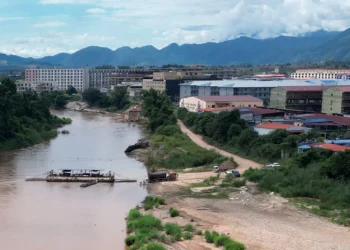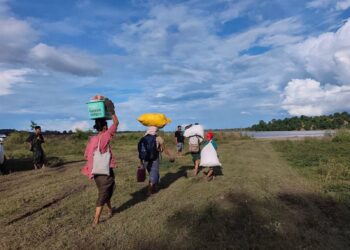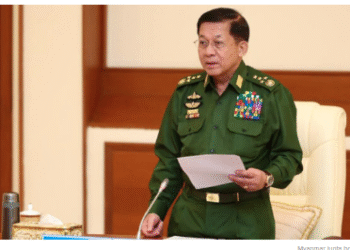Years from now, March 17, 2021, will be remembered as the day that Myanmar’s brief era of press freedom—however partial and imperfect it was—well and truly died.
As of this day, the country no longer has a single independent newspaper in publication. On Wednesday, The Standard Time (San Taw Chain) joined The Myanmar Times, The Voice, 7Day News and Eleven in suspending operations in the wake of last month’s military coup.
It was less than a decade ago that the quasi-civilian administration of former President Thein Sein began slowly lifting restrictions on Myanmar’s long-suppressed press.
As overt censorship became a thing of the past and new licenses were issued, the number of news outlets proliferated, in the surest sign of confidence in ongoing political and economic reforms.
Now only online news media remain as the last lifeline for millions of citizens desperate for reliable sources of information amid the military-induced freefall.
With this in mind, the new regime is acting to sever this last connection as it moves to plunge the country into darkness.
“The situation for press freedom is only going to get worse as they cut off the internet,” says political analyst Sithu Aung Myint, before adding: “The country no longer has democracy or an ounce of freedom.”
Piling pressure on news media
It took 10 days for the regime’s Ministry of Information to start making Orwellian demands. On February 11, it issued new instructions to the Myanmar Press Council, “urging” news media to “practice ethics” and stop referring to the “State Administration Council” as a junta.
Citing provisions in Myanmar’s military-drafted constitution, the junta’s arbiters of truth claimed that the regime came to power by legitimate means because a state of emergency had been duly declared.
Newspapers, journals, and websites that persisted in using language that suggested otherwise were not merely wrong, but were also violating media ethics and inciting unrest, the ministry insisted.
Eleven days later, on February22, the coup maker himself, Senior General Min Aung Hlaing, warned the media that their publishing licenses would be revoked if they continued to use words that didn’t meet with his approval.
But on February 25, in a show of defiance, some 50 news outlets declared their intention to keep reporting on the situation as it unfolded, and to describe the regime and its actions as they saw fit.
The arrests begin
Two days later, the junta began targeting the most vulnerable and essential participants in the whole news-making process: reporters.
On February 27, five journalists covering the junta’s crackdowns on anti-dictatorship activities were arrested and later charged with incitement under section 505a of the Penal Code.
Myanmar Now’s multimedia reporter Kay Zon Nway was one of those arrested that day. She was doing her job of documenting the brutal assault on protesters in Yangon’s Sanchaung township when she was apprehended while fleeing the regime’s forces as they lashed out at everyone in sight.
Original News – Myanmar NOW ( https://myanmar-now.org/en/news/myanmar-becomes-a-nation-without-newspapers )






